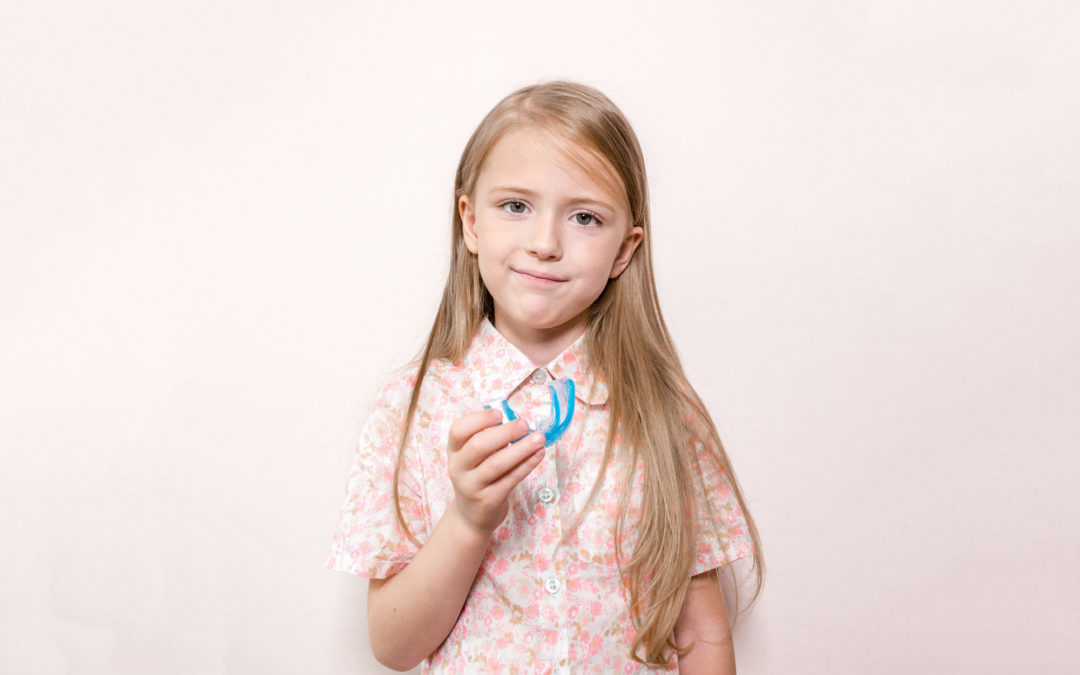Did you know that up to 30% of people grind their teeth? It’s a problem that not enough people are talking about, and it can have dire consequences.
Even children can grind their teeth, and even though they may still only have their baby teeth, it can lead to future issues. We’re here to talk about childhood teeth grinding so you can identify it and start working toward a solution.
Read on to learn more.
What Causes Childhood Teeth Grinding?
So why would your child be grinding their teeth in the first place? Many adults are under the impression that teeth grinding is an adult problem exclusively, but this isn’t the case.
So what could be causing your child to grind their teeth? Here are a few potential causes.
Stress and Anxiety
Stress is one of the top causes of bruxism (teeth grinding) in adults and children alike. This is a cause that often goes unnoticed by busy parents, especially if their children are young. They may not know that anxiety is common amongst minors (with up to 9.4% of American children experiencing some level of anxiety).
Stress can be chronic or situational. Children who are stressed about school, family disturbances, and home issues (no matter how small) may start grinding their teeth temporarily.
As with all other potential causes for teeth grinding, studies on this are inconclusive. Teeth grinding is more common amongst people (including children) with anxiety and higher levels of stress, but there’s no clear answer as to “why” this happens.
Teeth grinding is also more common amongst children with other mental health conditions, such as ADHD.
Dental Issues
Certain dental issues can also contribute to teeth grinding.
Teeth grinding is more common amongst children who have crooked teeth and misaligned bites. Unfortunately, having fixed orthodontic devices (such as braces) may also cause teeth grinding (though it may fix the problem long-term).
The pressure from teeth grinding may relieve discomfort from the braces, though it’s unclear as to whether or not this is the cause.
Sleep Apnea and Related Issues
If your child snores, breathes with their mouth open, or has sleep apnea, they’re more likely to also grind their teeth. It’s unclear as to why that happens. Research suggests that it may be due to the pauses in breathing that happen as a result of sleep apnea.
Signs That Your Child Is Grinding Their Teeth
It’s easy to identify if you’re grinding your own teeth at night. You may wake up with a sore jaw and your teeth might be hurting or sensitive. How can you tell if your child is grinding their teeth?
Ideally, you’ll have an open line of communication between yourself and your child. If this is the case (and they’re old enough to communicate their problems), they’ll likely tell you if they’re experiencing tooth and jaw pain that could be a sign of teeth grinding.
If your child isn’t forthcoming about their pain (potentially out of a fear of the dentist), no problem. There are a few signs that you can look for.
First, pay attention to potential signs of tooth pain or sensitivity. Your child may start avoiding hard and chewy foods, as well as foods and drinks that are too hot or too cold (such as ice cream or ice water).
You may be able to notice physical signs of teeth grinding, such as receding gums or chipped teeth.
Your child may be experiencing headaches. If your child is avoiding bright lights or showing symptoms of pain (such as increased irritability), teeth grinding could be the culprit.
Why Is Teeth Grinding a Problem for Children?
Teeth grinding might not seem like a big deal, but it can have some large consequences. While one or two nights of stress-related teeth grinding shouldn’t be a cause for concern, if it’s frequent, it may lead to other problems.
As we mentioned before, cracked, broken, and worn-down teeth are a sign of teeth grinding. Even if your child still only has baby teeth (that will be replaced), these are large problems with long-term consequences.
Teeth grinding can also lead to gum recession which is difficult to fix.
Teeth grinding can lead to TMJ (or temporomandibular joint dysfunction). This means that the child’s jaw is no longer balanced. This can cause jaw pain and even occasional jaw locking.
Teeth grinding can lead to further sleep disruptions as well as certain mental health conditions, such as anxiety (which can further impact teeth grinding).
How to Stop Grinding Teeth
There are several potential treatments for childhood teeth grinding.
First, if the grinding was caused by stress, stress relief should be the first course of action. Communicate with your child to see if you can identify potential stressors. You can work together to combat those stressors and help your child relax.
It may be helpful to seek out counseling for your child or to find them fun extra-curricular activities to take part in. Make sure that you prioritize your child’s mental health just as much as their physical health.
If your child doesn’t have a soothing nighttime routine, now is a good time to start one. This will minimize sleep problems and it may improve teeth grinding.
In the meantime, or if your child isn’t experiencing stress or anxiety, it’s a good idea to consult a pediatric dentist about a mouth guard or night guard. The guard or splint will reposition your child’s jaw and protect teeth from friction.
Is Your Child Grinding Their Teeth?
If your child is experiencing nighttime teeth grinding, it’s time to put a stop to it. While teeth grinding seems like a small issue, it can lead to oral health and sleep problems that have long-term effects.
If you’re ready to talk to a Fort Worth pediatric dentistry expert about your child’s teeth grinding problem, we want to meet you! Contact us to set up an appointment today.

